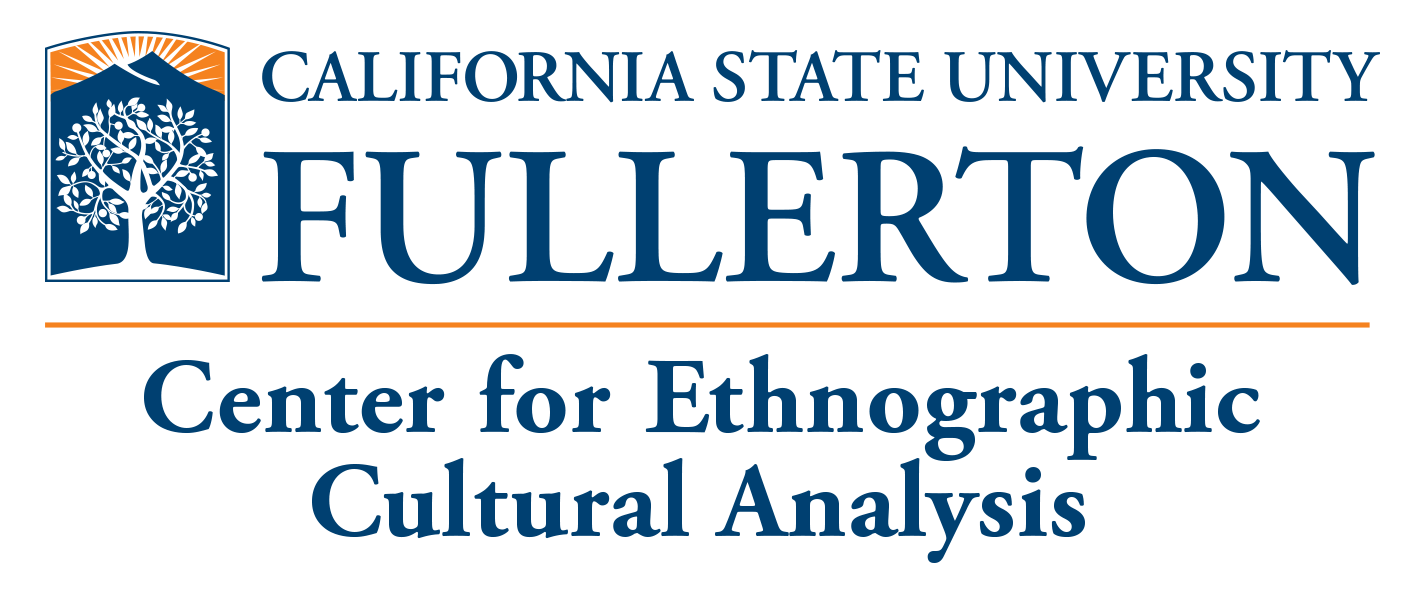Center for Ethnographic and Cultural Analysis
Spring 2023 events & announcements
The mission of the Center for Ethnographic and Cultural Analysis (CECA) is to provide students with resources and a space for equipment, training, and hands-on experience in systematic cultural analysis that will be transferable to the workplace, and to prepare students for graduate study. In addition to serving students in Cultural Anthropology, as of 2016, CECA has expanded to include interdisciplinary faculty from across the university. The goals of CECA include:
- supporting ethnographic research, methodology, and innovations to provide opportunities for interdisciplinary and multidisciplinary work
- providing facilities and technology for ethnographic research and teaching
- providing facilities and technology for graduate and undergraduate students to engage in local community, national, and international research
- facilitating community-based research in surrounding southern California communities
Co-Directors
Sarah Grant (Anthropology)
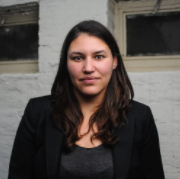 Sarah G. Grant is Associate Professor of Anthropology at California State University, Fullerton. Her research uses ethnographic methods to understand the human experiences of industrial agriculture, climate change, and precarity in contemporary Vietnam. She is finishing her first book length manuscript about industrial coffee production in the Central Highlands of Vietnam and developing two new research projects. The first is a multispecies examination of fertilizer production, birds, aquatic life, and climate change in the Mekong Delta. The second is an ethnography of citizen science, conservation, and birdwatching communities in a transnational context.
Sarah G. Grant is Associate Professor of Anthropology at California State University, Fullerton. Her research uses ethnographic methods to understand the human experiences of industrial agriculture, climate change, and precarity in contemporary Vietnam. She is finishing her first book length manuscript about industrial coffee production in the Central Highlands of Vietnam and developing two new research projects. The first is a multispecies examination of fertilizer production, birds, aquatic life, and climate change in the Mekong Delta. The second is an ethnography of citizen science, conservation, and birdwatching communities in a transnational context.
Before joining the Division of Anthropology at CSUF, she held a LUCE-ASIANetwork Foundation Postdoctoral Teaching Fellowship at Hendrix College
Karen Stocker (Anthropology)
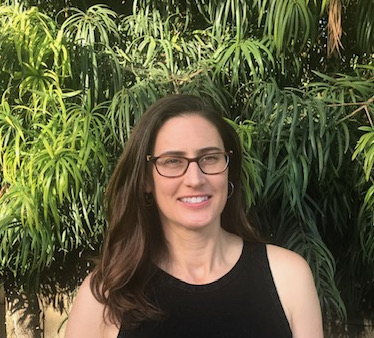 Karen Stocker is Professor of Anthropology at CSU, Fullerton, where she teaches cultural and linguistic anthropology. For thirty years, she has conducted ethnographic research in Costa Rica, on a variety of topics. These have included interviews with Costa Rica’s first women voters and with former banana plantation laborers, as well as ethnographic research on cultural change and revitalization in Chorotega Indigenous Territory, Chorotega narrative practice, schooling and Indigeneity, tourism, art, and social movements led by young people. She is the author of four books and various other publications rooted in ethnographic inquiry.
Karen Stocker is Professor of Anthropology at CSU, Fullerton, where she teaches cultural and linguistic anthropology. For thirty years, she has conducted ethnographic research in Costa Rica, on a variety of topics. These have included interviews with Costa Rica’s first women voters and with former banana plantation laborers, as well as ethnographic research on cultural change and revitalization in Chorotega Indigenous Territory, Chorotega narrative practice, schooling and Indigeneity, tourism, art, and social movements led by young people. She is the author of four books and various other publications rooted in ethnographic inquiry.
Affiliated Faculty
Ahmed Afzal (Anthropology)
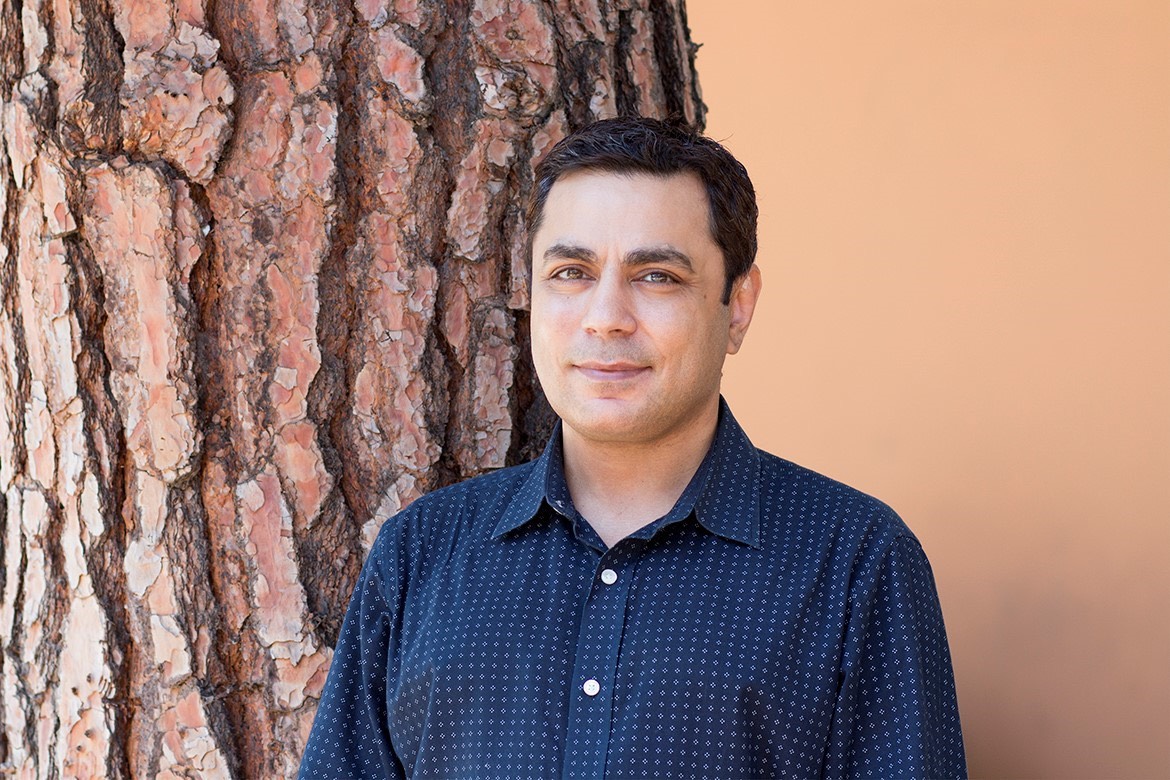 Ahmed Afzal completed his undergraduate education at Vassar College (BA, Self-Designed Major: Third World Cultures), and his graduate education at the London School of Economics (MSc, Environmental Assessment and Evaluation) and at Yale University (MPhil and PhD, Cultural Anthropology). Ahmed has taught at Colgate University, State University of New York at Purchase, and California State University, Stanislaus, prior to teaching at California State University, Fullerton. Dr. Afzal is the author of Lone Star Muslims: Transnational Lives and the South Asian Experience in Texas (New York University Press, 2015). His research focuses on globalization, urbanism and everyday life, gender and sexuality, and new immigrant experiences with special emphasis on the United States and contemporary Pakistan.
Ahmed Afzal completed his undergraduate education at Vassar College (BA, Self-Designed Major: Third World Cultures), and his graduate education at the London School of Economics (MSc, Environmental Assessment and Evaluation) and at Yale University (MPhil and PhD, Cultural Anthropology). Ahmed has taught at Colgate University, State University of New York at Purchase, and California State University, Stanislaus, prior to teaching at California State University, Fullerton. Dr. Afzal is the author of Lone Star Muslims: Transnational Lives and the South Asian Experience in Texas (New York University Press, 2015). His research focuses on globalization, urbanism and everyday life, gender and sexuality, and new immigrant experiences with special emphasis on the United States and contemporary Pakistan.
Lucia Alcala (Psychology)
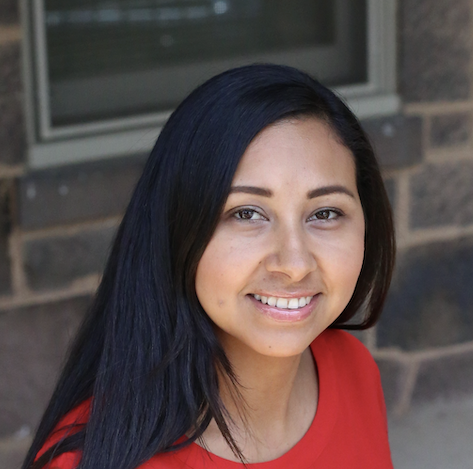
I earned my Ph.D. in Developmental Psychology from the University of California Santa Cruz under the mentorship of Dr. Barbara Rogoff (June, 2014). I spent one year at the Universidad Maya de Quintana Roo as a visiting professor before coming to CSUF in the fall of 2016.
Brenda Bowser (Anthropology)
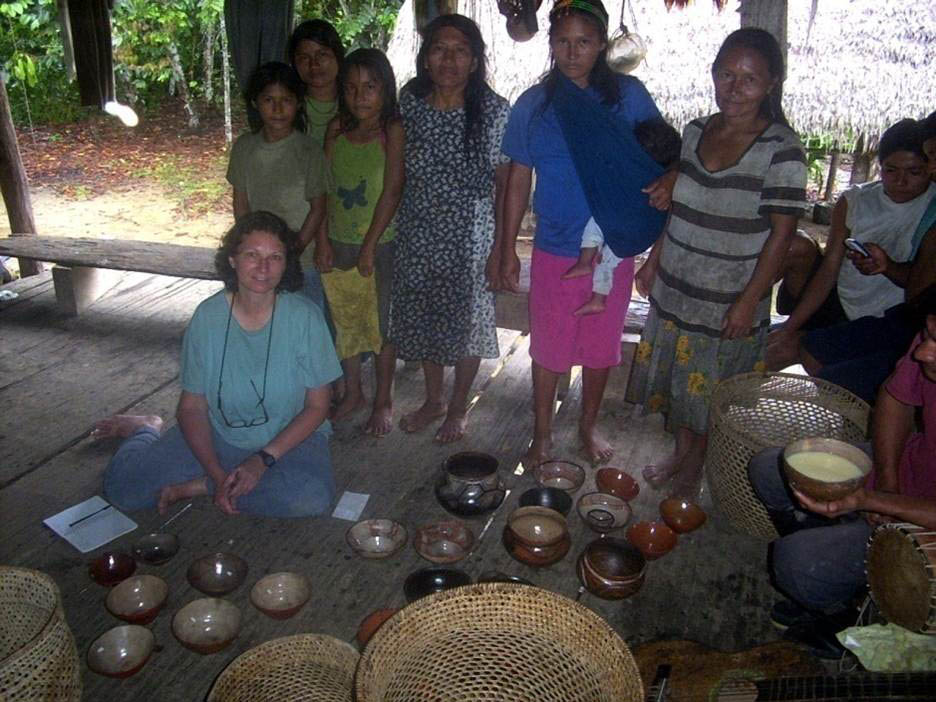 Brenda Bowser is a Professor of Anthropology in the Archaeology Program at California State University, Fullerton. She completed her undergraduate education at the University of Southern Maine (BA, Geography and Anthropology) and her graduate education at the University of California, Santa Barbara (MA and PhD, Anthropology, Archaeology Emphasis). She was a private-sector senior scientist and project manager in environmental planning for government agencies and taught at Washington State University before joining the faculty at California State University, Fullerton. Currently, Bowser is the editor of Ethnoarchaeology: Journal of Archaeological, Ethnographic, and Experimental Studies. Her research and publications focus on the dynamics of political factionalism, cultural transmission, identity, materiality, and gender with special emphasis on Amazonian heritage, indigeneity, politicized identity, cultural landscapes, and deep history. She has served as an advocate for the Sápara Nation of Ecuador for more than 25 years.
Brenda Bowser is a Professor of Anthropology in the Archaeology Program at California State University, Fullerton. She completed her undergraduate education at the University of Southern Maine (BA, Geography and Anthropology) and her graduate education at the University of California, Santa Barbara (MA and PhD, Anthropology, Archaeology Emphasis). She was a private-sector senior scientist and project manager in environmental planning for government agencies and taught at Washington State University before joining the faculty at California State University, Fullerton. Currently, Bowser is the editor of Ethnoarchaeology: Journal of Archaeological, Ethnographic, and Experimental Studies. Her research and publications focus on the dynamics of political factionalism, cultural transmission, identity, materiality, and gender with special emphasis on Amazonian heritage, indigeneity, politicized identity, cultural landscapes, and deep history. She has served as an advocate for the Sápara Nation of Ecuador for more than 25 years.
Siobhan Brooks (African American Studies)
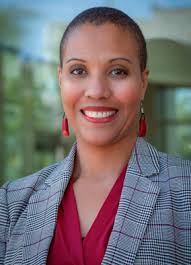 Siobhan Brooks is a sociologist and Professor of African American Studies at Cal State Fullerton, whose work focuses on the intersections of race, identity, gender, and sexuality in Black and Latinx communities. Brooks received her Ph.D. from the New School in Sociology. She is the author of Unequal Desires: Race and Erotic Capital in the Stripping Industry (SUNY Press, 2010), which is an ethnographic study of racial stratification in strip clubs among Black and Latina exotic dancers. It won the SUNY Press Queer Studies Prize.
Siobhan Brooks is a sociologist and Professor of African American Studies at Cal State Fullerton, whose work focuses on the intersections of race, identity, gender, and sexuality in Black and Latinx communities. Brooks received her Ph.D. from the New School in Sociology. She is the author of Unequal Desires: Race and Erotic Capital in the Stripping Industry (SUNY Press, 2010), which is an ethnographic study of racial stratification in strip clubs among Black and Latina exotic dancers. It won the SUNY Press Queer Studies Prize.
Her recent book, Everyday Violence against Black and Latinx LGBT Communities (Lexington Books, 2020), uses the 2016 Pulse shooting as a launching point to examine the intersections of ideology, and institutions, which promote violence against Black and Latinx LGBT people. Brooks highlights the role of families, healthcare, educational settings, and religious spaces as both sites of the perpetuation of violence, and spaces of transformation.
Eric Canin (Anthropology)
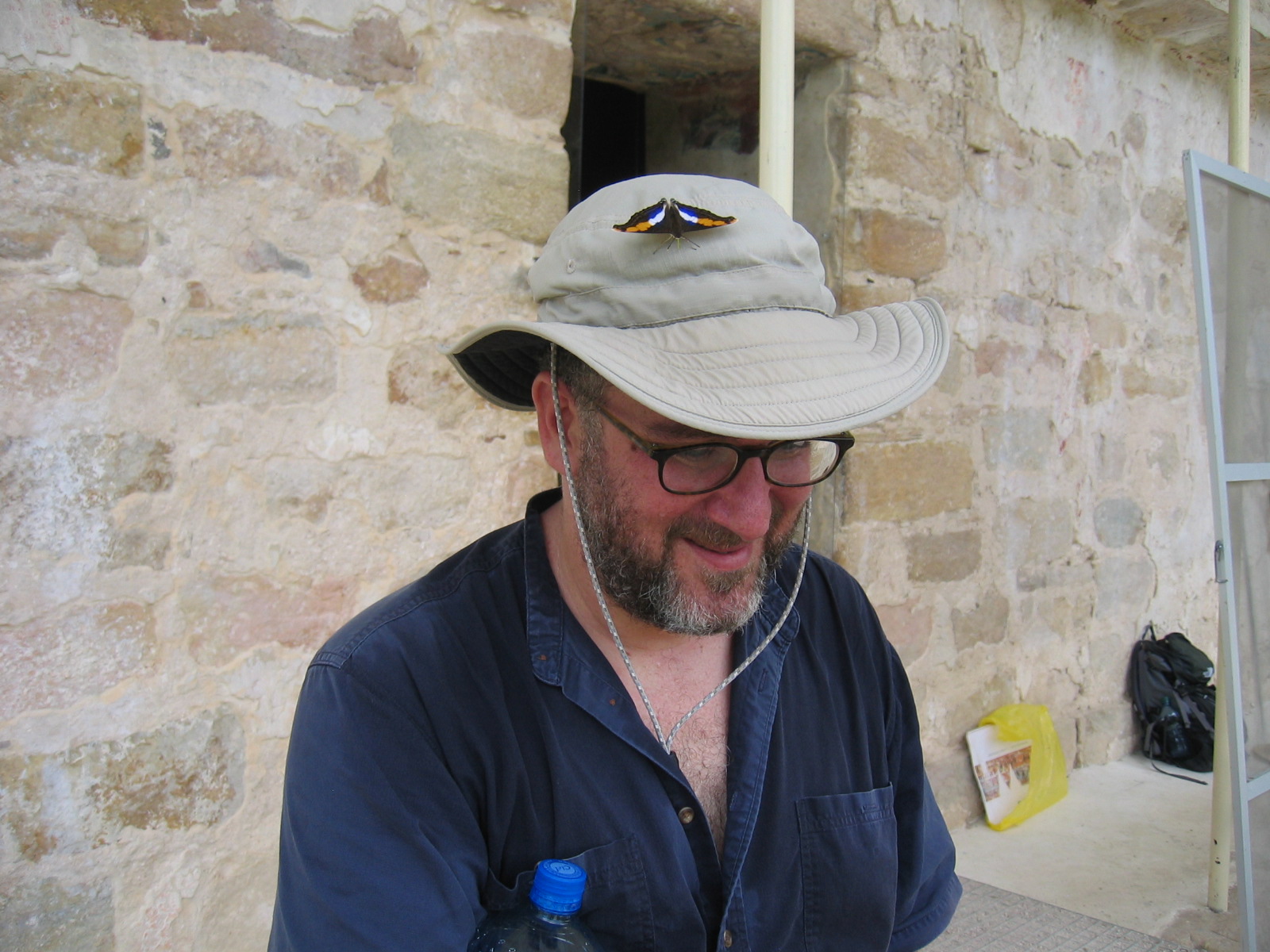 Eric Canin's B.A. is in Religious Studies (UC Berkeley) and Ph.D is in Anthropology (Columbia University). Ethnographic field sites are Managua, Nicaragua on religion and revolution and Quintana Roo, Mexico on the Maya 2012 end times phenomenon. Current research includes virtual and physical worlds.
Eric Canin's B.A. is in Religious Studies (UC Berkeley) and Ph.D is in Anthropology (Columbia University). Ethnographic field sites are Managua, Nicaragua on religion and revolution and Quintana Roo, Mexico on the Maya 2012 end times phenomenon. Current research includes virtual and physical worlds.
Dana Collins (Sociology)
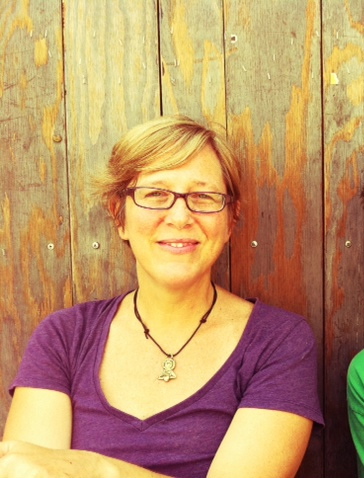 Dana Collins is an associate professor of sociology at California State University, Fullerton. She has published widely on transnational sexualities, including her ethnographic research on a former-sex and current global tourist district, Malate, in the City of Manila, the Philippines. She’s recently published a book on this project with Palgrave Macmillan titled The Rise and Fall of an Urban Sexual Community: Malate (dis)Placed. Her new research and teaching interests are in feminist political ecology, food justice, the making of global crises, wherein she is teaching a new course called “The Social Life of Food,” and conducting research on food crisis and justice struggles.
Dana Collins is an associate professor of sociology at California State University, Fullerton. She has published widely on transnational sexualities, including her ethnographic research on a former-sex and current global tourist district, Malate, in the City of Manila, the Philippines. She’s recently published a book on this project with Palgrave Macmillan titled The Rise and Fall of an Urban Sexual Community: Malate (dis)Placed. Her new research and teaching interests are in feminist political ecology, food justice, the making of global crises, wherein she is teaching a new course called “The Social Life of Food,” and conducting research on food crisis and justice struggles.
Taylor Cruz (Sociology)
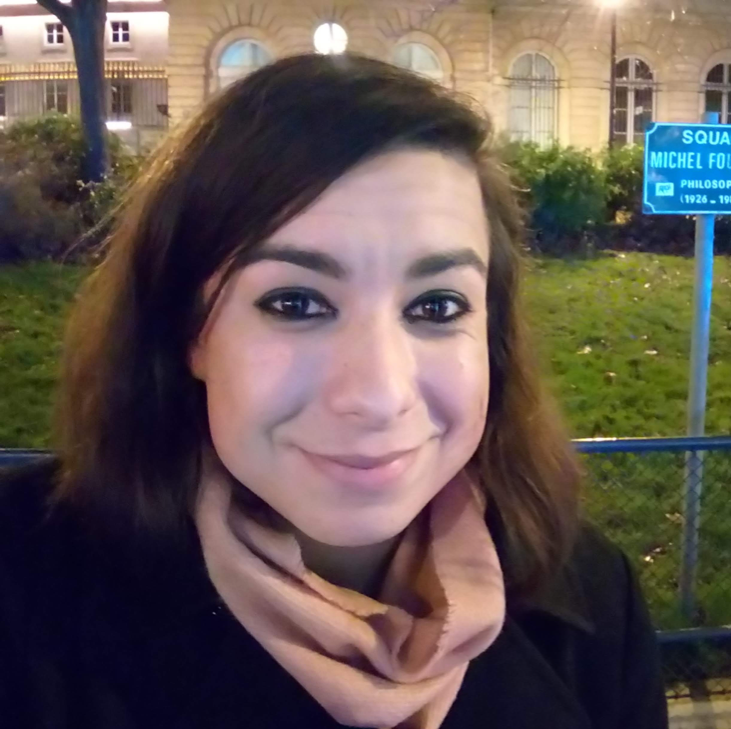 Taylor M. Cruz, PhD is a sociologist of science, technology, and medicine. She studies the societal and ethical dimensions of data analytics and artificial intelligence (AI), including as these appear within health and biomedicine. Her research draws on a broad range of qualitative methods to follow data-intensive and AI technologies across contexts: current projects examine the integration of Electronic Health Records (EHRs) and expanded data infrastructures within clinical settings, data standardization on social domains to redress health inequities, and community resistance to automation in the Los Angeles Harbor Region. Her work is featured in Social Science & Medicine, Big Data & Society, and Information, Communication & Society (iCS); from a previous research life, she has also published on HIV/AIDS, stigma, and access to care. She received her PhD in Sociology from UC San Francisco, where she was a National Science Foundation Graduate Research Fellow and recipient of the Diana Forsythe Award for Social Studies of Science, Technology, and Health.
Taylor M. Cruz, PhD is a sociologist of science, technology, and medicine. She studies the societal and ethical dimensions of data analytics and artificial intelligence (AI), including as these appear within health and biomedicine. Her research draws on a broad range of qualitative methods to follow data-intensive and AI technologies across contexts: current projects examine the integration of Electronic Health Records (EHRs) and expanded data infrastructures within clinical settings, data standardization on social domains to redress health inequities, and community resistance to automation in the Los Angeles Harbor Region. Her work is featured in Social Science & Medicine, Big Data & Society, and Information, Communication & Society (iCS); from a previous research life, she has also published on HIV/AIDS, stigma, and access to care. She received her PhD in Sociology from UC San Francisco, where she was a National Science Foundation Graduate Research Fellow and recipient of the Diana Forsythe Award for Social Studies of Science, Technology, and Health.
Dydia DeLyser (Geography and the Enviornment)
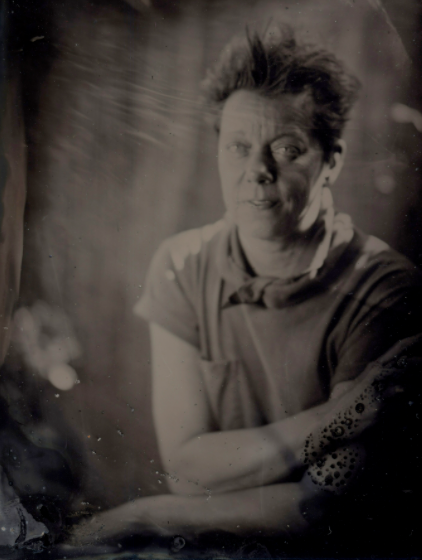
I am a feminist, qualitative, cultural-historical geographer with research interests that span issues of landscape, social memory, tourism, mobilities, practice and performance, materialities, cultures of enthusiasm, qualitative research, collaborative and participatory research, including participatory historical geography, writing, and the scholarship of teaching.
I am committed to rich empirical research and have engaged topics both archival and ethnographic, practicing a wide array of qualitative methods (including participant observation, auto-ethnography, interviewing, life history, and archival research) in efforts apprehend a wide range of topics, including:
- how neon signs engage both art and craft in an active practice that forms representational messages out of gas, glass, and electricity—I am at work on a book about the historical geography of neon signs in the US
- how women pilots in the late 1920s and early 1930s used their practices of flying to advance feminism in the post-suffrage era
- how historical geographers can contribute to and advance the agendas of historical communities through participatory historical geography
- how seemingly mundane kitsch souvenirs shape intimate geographies of social memory, my own included
- how the nineteenth-century novel Ramona structured the ways that tourists and locals would understand and experience southern California’s past through both fictional and factual landscapes, and how the practices of tourists transformed those landscapes
- how monuments contribute to an embodied spatial framework for the creation of social memory
- how ghost towns in the US West are and have been understood by residents and visitors through their landscapes of absence and abandonment
Barbra Erickson (Anthropology)
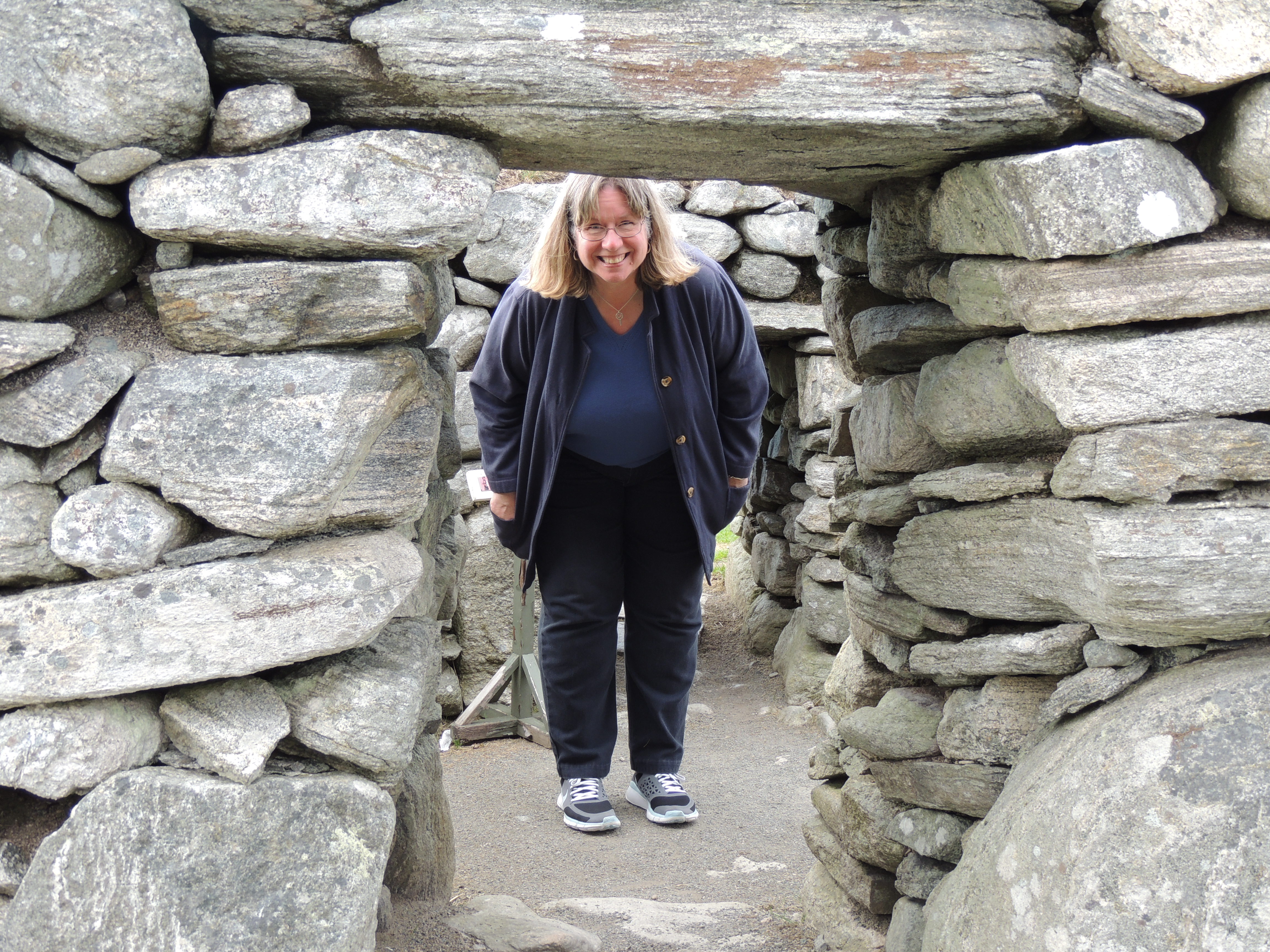
Manuel Galaviz-Ceballos (Anthropology)
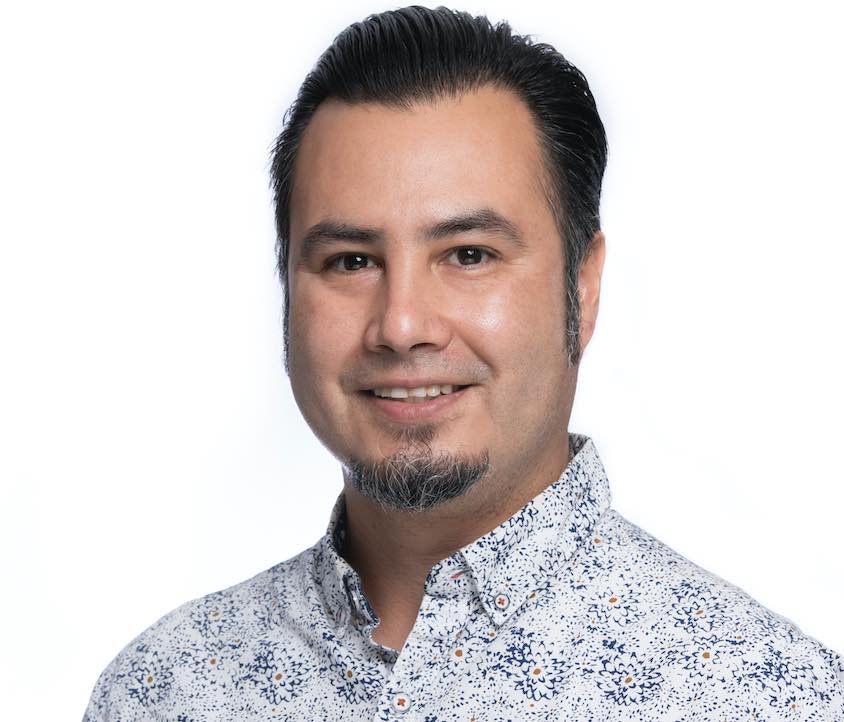 Manuel (Manny) Galaviz-Ceballos is an Assistant Professor of Anthropology at CSU, Fullerton. His research is broadly inspired by his training in urban and borderlands anthropology. More specifically, his experience as a construction worker and his undocumented youth in Southern California motivate his ethnographic inquiries. Manny is currently writing a monograph titled, Entanglements of Mobility and Militarized Ecologies, which puts life histories of Mexican-U.S. migrations between the 1980s and 2000s in conversation with the U.S. expansion and production of militarized border landscapes across the California-Mexican borderlands. He is also developing an ethnographic research project that examines gentrification, displacement, and alienation through the lens of undocumented construction labor. He currently volunteers with #LibroMobile Arts Cooperative in Santa Ana, California. Manny is also the host and editor of the LM Voices Scholar Holler Podcast, a series focused on first-generation graduate student and faculty experiences.
Manuel (Manny) Galaviz-Ceballos is an Assistant Professor of Anthropology at CSU, Fullerton. His research is broadly inspired by his training in urban and borderlands anthropology. More specifically, his experience as a construction worker and his undocumented youth in Southern California motivate his ethnographic inquiries. Manny is currently writing a monograph titled, Entanglements of Mobility and Militarized Ecologies, which puts life histories of Mexican-U.S. migrations between the 1980s and 2000s in conversation with the U.S. expansion and production of militarized border landscapes across the California-Mexican borderlands. He is also developing an ethnographic research project that examines gentrification, displacement, and alienation through the lens of undocumented construction labor. He currently volunteers with #LibroMobile Arts Cooperative in Santa Ana, California. Manny is also the host and editor of the LM Voices Scholar Holler Podcast, a series focused on first-generation graduate student and faculty experiences.
Christopher Gibson (Sociology)
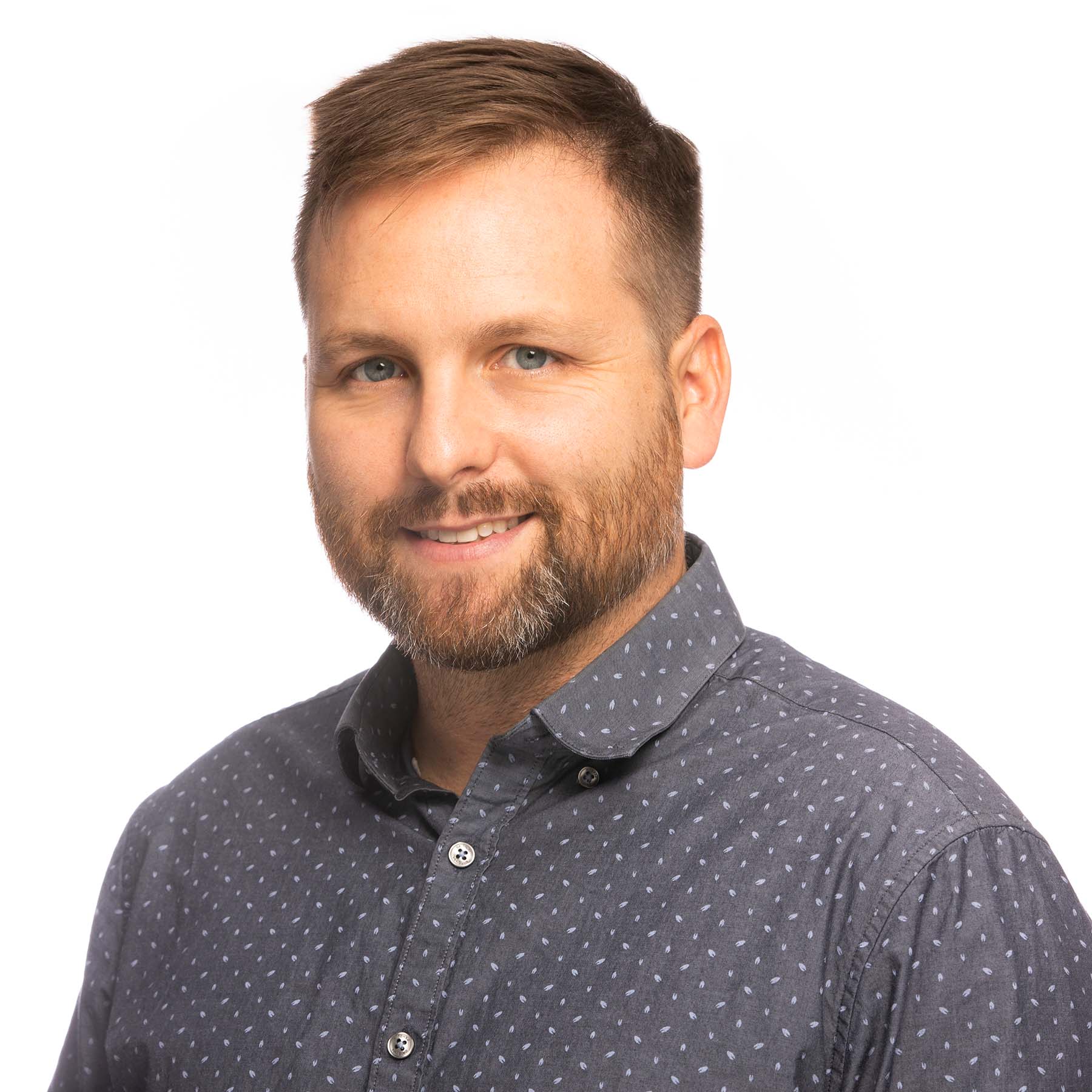 Christopher Gibson is Assistant Professor of Sociology at California State University, Fullerton. He received his doctorate from the Department of Sociology at UC Irvine and he also holds an MA in Global Studies from UC Santa Barbara. His research focuses on the intersection of economic markets and social policy, with special attention to environmental governance. In short, he is interested in asking, in what ways can we best prepare our governance institutions to equitably address the challenges climate change? His current research project examines water management in California to understand the role of financial markets in shaping policy decisions. Chris has published in the International Journal of Politics, Culture, and Society, Visual Studies, the Review of European Studies, and the Oxford Handbook of Consumption. He has forthcoming research in the Finance & Society and the Routledge Handbook on the Green New Deal. In his teaching, Chris embraces collaborative learning environments in which students are empowered as co-creators of collective knowledge and understanding of important social issues.
Christopher Gibson is Assistant Professor of Sociology at California State University, Fullerton. He received his doctorate from the Department of Sociology at UC Irvine and he also holds an MA in Global Studies from UC Santa Barbara. His research focuses on the intersection of economic markets and social policy, with special attention to environmental governance. In short, he is interested in asking, in what ways can we best prepare our governance institutions to equitably address the challenges climate change? His current research project examines water management in California to understand the role of financial markets in shaping policy decisions. Chris has published in the International Journal of Politics, Culture, and Society, Visual Studies, the Review of European Studies, and the Oxford Handbook of Consumption. He has forthcoming research in the Finance & Society and the Routledge Handbook on the Green New Deal. In his teaching, Chris embraces collaborative learning environments in which students are empowered as co-creators of collective knowledge and understanding of important social issues.
Ella Ben Hagai (Psychology)
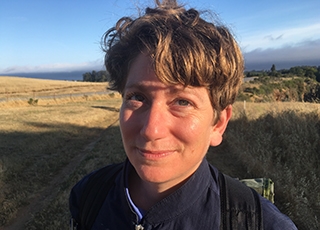 Ella Ben Hagai is a professor of social psychology at California State University Fullerton. Her research explores what leads members of groups in conflict to acknowledge the outgroup narrative and work in solidarity for more equal distribution of resources. Trained in Anthropology at the London School of Economics (MSc) and Psychology at UC Berkeley (BA) and UC Santa Cruz (Ph.D), she is versed in an eclectic set of methodologies including ethnographical, interviews, and survey research. Recently published articles use different methods to explore the formation of solidarity among African American, Latinx, and Queer-identified people who are part of the justice in Palestine movement. Another set of articles analyzes the current schism in the Jewish American community regarding Israel, including debates on college campuses between Jewish groups and the influence of the Birthright trip on Jewish Americans' understanding of the Israeli-Palestinian conflict.
Ella Ben Hagai is a professor of social psychology at California State University Fullerton. Her research explores what leads members of groups in conflict to acknowledge the outgroup narrative and work in solidarity for more equal distribution of resources. Trained in Anthropology at the London School of Economics (MSc) and Psychology at UC Berkeley (BA) and UC Santa Cruz (Ph.D), she is versed in an eclectic set of methodologies including ethnographical, interviews, and survey research. Recently published articles use different methods to explore the formation of solidarity among African American, Latinx, and Queer-identified people who are part of the justice in Palestine movement. Another set of articles analyzes the current schism in the Jewish American community regarding Israel, including debates on college campuses between Jewish groups and the influence of the Birthright trip on Jewish Americans' understanding of the Israeli-Palestinian conflict.
Pablo Jasis (Sociology)
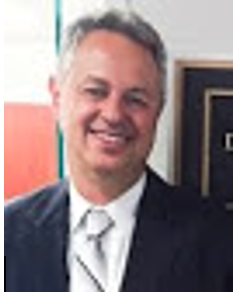 Dr. Jasis’ research and teaching are centered on the socio-cultural contexts and the diversity of education, and on their potential for social change. His work focuses on the following areas of inquiry: Multicultural Education, Migrant Education, Social Justice Education, Sociology of the Latino Community, Popular Education/Critical Pedagogy, and Adult Education. He is also the Principal Investigator for CSUF’s High School Equivalency Program (HEP), a federally-funded community-based educational effort serving migrant farmworker and their families in rural communities of Southern California. His articles have published and widely cited in US and international peer-reviewed journals. He earned his Master in International and Community Education at Harvard University, and his Ph.D. in Social and Cultural Studies in Education at the University of California, Berkeley.
Dr. Jasis’ research and teaching are centered on the socio-cultural contexts and the diversity of education, and on their potential for social change. His work focuses on the following areas of inquiry: Multicultural Education, Migrant Education, Social Justice Education, Sociology of the Latino Community, Popular Education/Critical Pedagogy, and Adult Education. He is also the Principal Investigator for CSUF’s High School Equivalency Program (HEP), a federally-funded community-based educational effort serving migrant farmworker and their families in rural communities of Southern California. His articles have published and widely cited in US and international peer-reviewed journals. He earned his Master in International and Community Education at Harvard University, and his Ph.D. in Social and Cultural Studies in Education at the University of California, Berkeley.
Carrie Lane (American Studies)
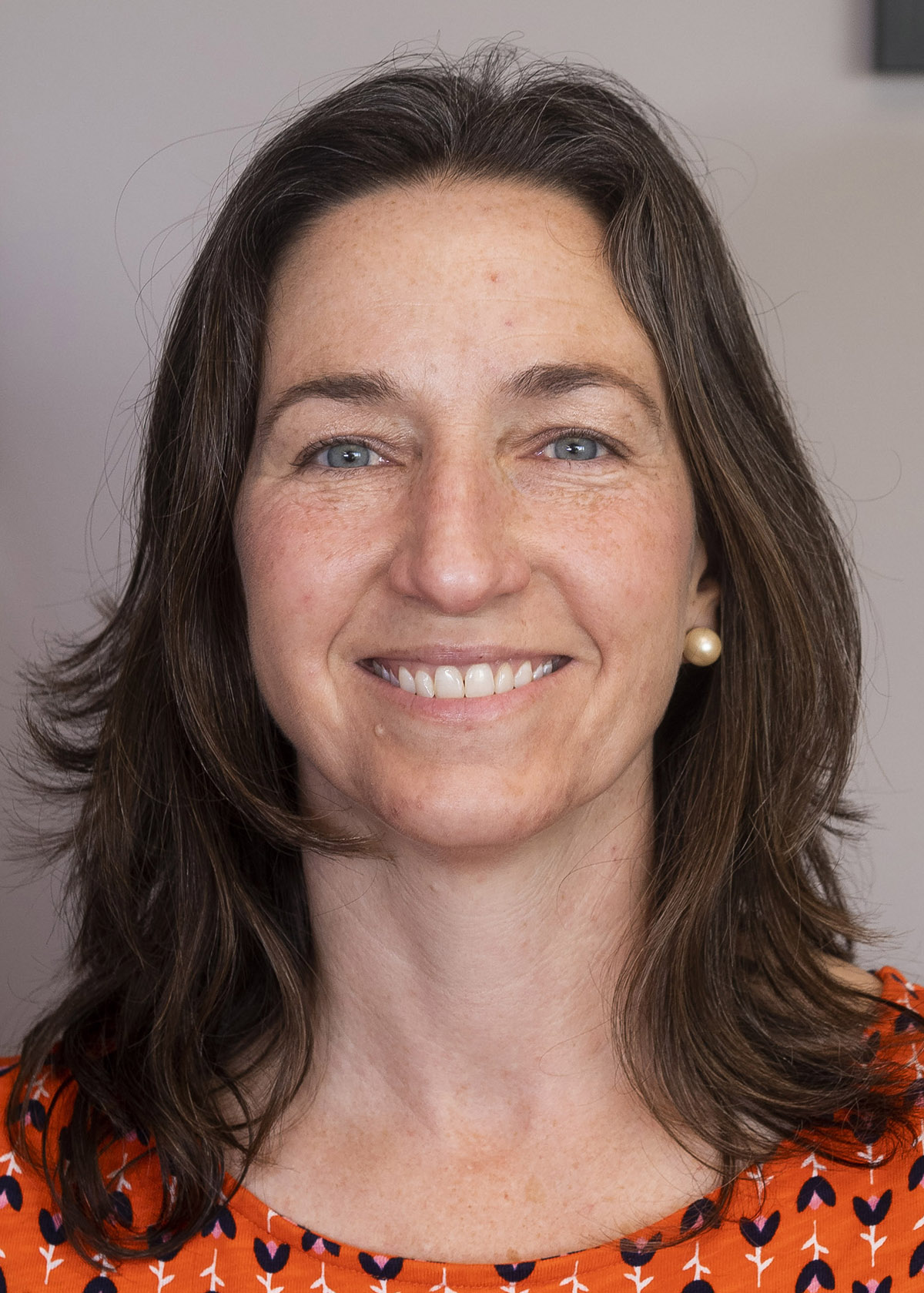 Carrie Lane, Professor of American Studies, is an ethnographer whose research concerns the changing nature of work in the United States. Her books include A Company of One: Insecurity, Independence, and the New World of White-Collar Unemployment and Anthropologies of Unemployment: The Changing Study of Work and Its Absence (co-edited with Jong Bum Kwon). She is currently finishing a book on the professional organizing industry, in which organizers help people manage their homes, workspaces, and belongings. At CSUF, Professor Lane teaches about ethnography, work, gender, disability, community, and interdisciplinary research methods.
Carrie Lane, Professor of American Studies, is an ethnographer whose research concerns the changing nature of work in the United States. Her books include A Company of One: Insecurity, Independence, and the New World of White-Collar Unemployment and Anthropologies of Unemployment: The Changing Study of Work and Its Absence (co-edited with Jong Bum Kwon). She is currently finishing a book on the professional organizing industry, in which organizers help people manage their homes, workspaces, and belongings. At CSUF, Professor Lane teaches about ethnography, work, gender, disability, community, and interdisciplinary research methods.
Ash Woody (African American Studies)
Ash Woody is an Assistant Professor of African American Studies at California State University, Fullerton. A sociologist by training, they use ethnographic and in-depth interview methods to study connections between race, place, and emotions. Their current project, “Race, Space, and Resistance in America’s Whitest Big City” examines the emotional dimensions of racism experienced by Black and communities of color in Portland, Oregon- the demographically whitest big city in the United States. They are also interested in the ways urban and suburban inequalities are tied to racialized emotions. Dr. Woody’s academic work has been featured in academic journals such as Sociology of Race and Ethnicity, Social Problems, and Sociological Perspectives.
Laurie Walsh (Anthropology, Great Basin College)
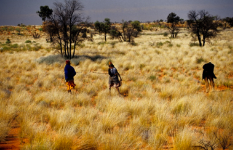
(Mantjiltjarra women and men hunting in the Western Desert tali (sandhill) country, 2002. )
In 2002, 2002, and 2004 I was lucky enough to conduct field work with residents of Kiwikurra, a remote Aboriginal community in western Australia. My intent was to study the social meaning of traditional camping places, but unfortunately for me and tragically for the community, three cyclones joined together and Kiwikurra was flooded. Members of the community were evacuated and displaced for many months. They were not able to use, embrace, and honor their traditional home country, and it hurt their souls. Many families returned in the summer of 2002 but many permanently left Kiwikurra. The event changed their lives and it challenge me.
As a neophyte ethnographer I suddenly had to face the reality of my ethnographic ‘subjects’ being displaced and in a situation that was brutal. The majority of the community was moved to a “refugee” camp a long distance from their homes. This resulted in discomfort, illness, and alcohol-related chaos. It was terrible and tragic. As a PhD student I knew I just had to carry on the best I could so I interviewed folks about traditional matters all the while trying to understand what was really very abnormal circumstances. I am still not sure about that part. A few months passed and people were finally able to return to places more familiar. I rented a 4WD and followed. And it was wandering the Western Desert in that vehicle where I truly met these folks and could learn about their lives at home and as displaced people. As students we learn the 1, 2, 3, 4s of field work, if we are lucky. But doing ethnography is fraught with difficulties and unexpected challenges as much as it is a joyful learning experience.
It has only been in the past year that I have realized that I was suffering from a kind of post traumatic stress in enduring the ordeal in the refugee camp where acute and chronic alcohol abuse and addiction was far too common. It was much better later on, but I had been affected. With no one to talk to who understood my circumstances I really could not deal with it honestly. Field work in distant places can be wonderful, but we need to acknowledge and learn about the difficulties and face those head on in our field work and accounts of other people’s lives.
Jayne Howell (Anthropology, CSULB)
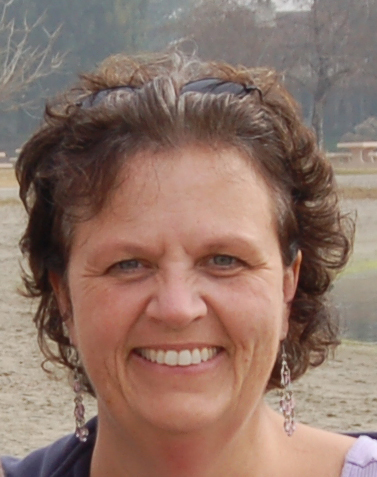
Jayne Howell is a professor in the Anthropology department and co-director of the Latin American Studies Program at CSU Long Beach. She earned her Ph.D. at the State University of New York at Stony Brook. Her long-term ethnographic research has focused on the intersection of gender, education and employment in rural and urban Oaxaca, Mexico. As part of this, she has studied informal sector employment, including domestic servants and food vendors. She has also conducted applied research projects in Southern California regarding use of public transportation and recycling habits.
